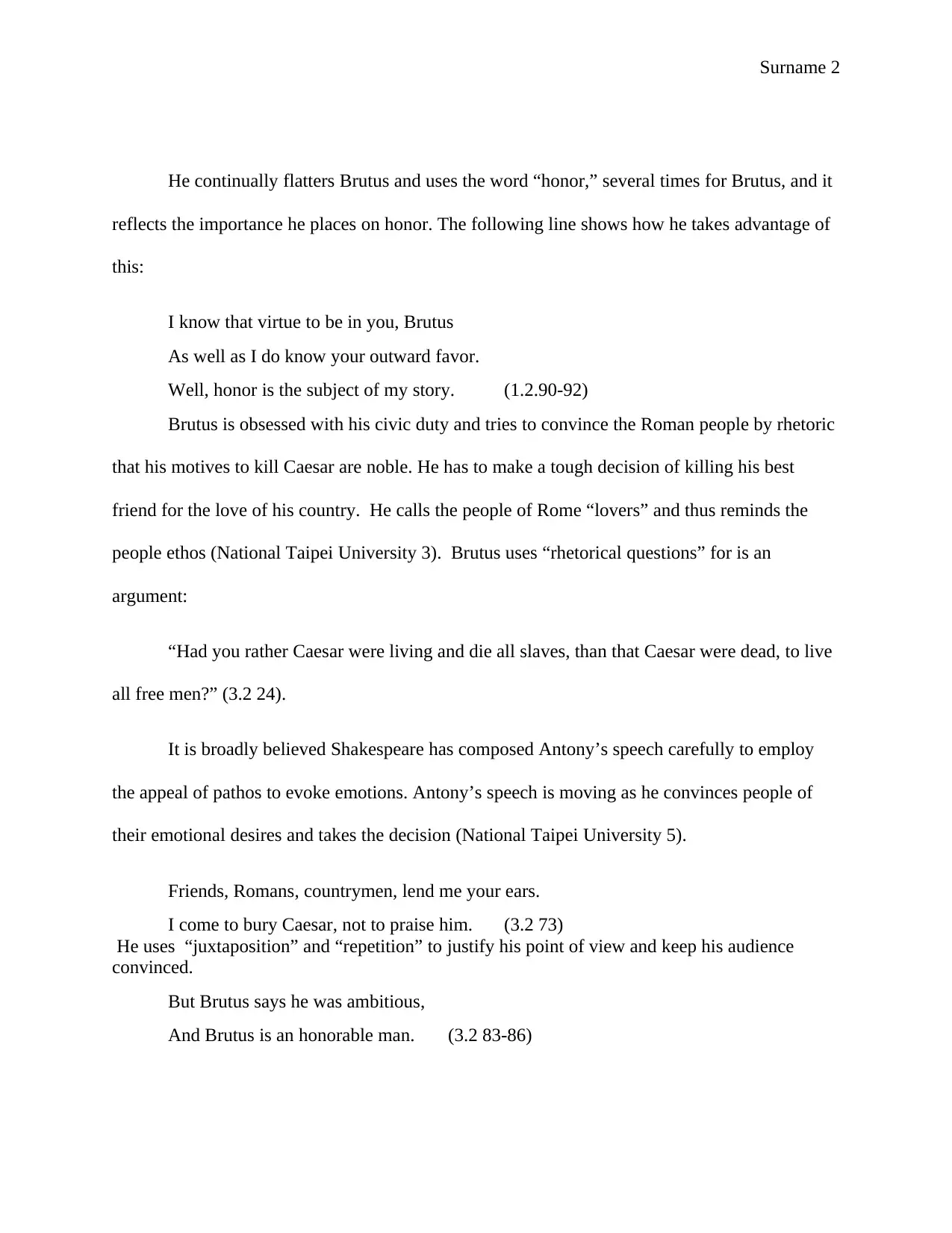Rhetoric and Persuasion in Shakespeare's Julius Caesar Play
VerifiedAdded on 2023/06/03
|4
|748
|289
Essay
AI Summary
This essay provides an analysis of rhetorical techniques employed by characters in Shakespeare's Julius Caesar. It explores how Cassius, Brutus, and Antony use rhetoric to persuade others, highlighting their different motivations and strategies. The essay examines specific examples of rhetorical devices, such as rhetorical questions, juxtaposition, and repetition, and how these techniques influence the audience. The analysis also considers the characters' use of ethos and pathos to sway public opinion and achieve their objectives. The essay draws upon scholarly sources to support its claims, offering a comprehensive understanding of rhetoric's role in the play and its impact on the characters' actions and the unfolding of events. It further examines the characters' use of language and how they convince the Roman population to follow their beliefs.
1 out of 4







![[object Object]](/_next/static/media/star-bottom.7253800d.svg)